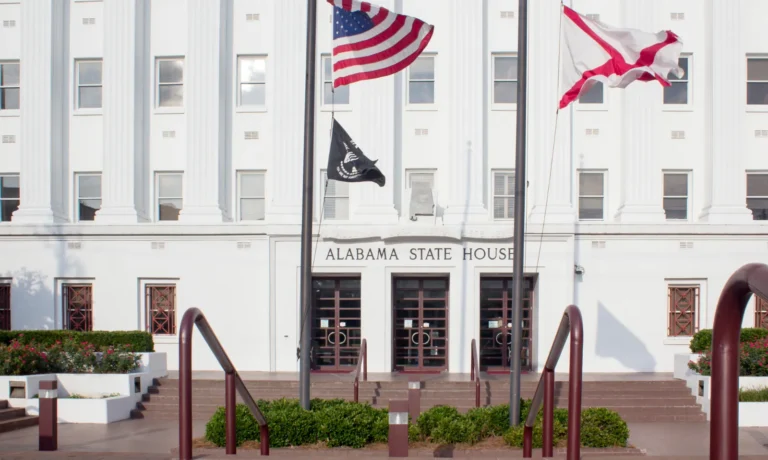MONTGOMERY, Ala.—A tax levied on online pornography companies that host content accessible in Alabama’s digital space is set to enter force on September 1, 2025, note several reports.
This is for the state’s so-called “Material Harmful to Minors” tax, which is a 10 percent levy on “the gross proceeds received through sales, distribution, memberships, subscriptions, and performances of material deemed harmful to minors.”
The tax was adopted by the state legislature through House Bill (HB) 164. AVN reported on the passage of the legislation in 2024, as it also encompassed the state’s age verification mandates and the required duty for platforms to publish pseudoscientific, ideological “public health warnings” about watching pornography on the internet.
The new tax applies to all adult websites, per the legislation. Unfortunately, the definition of adult websites is broadly worded.
HB 164 states, “In addition to all other taxes of every kind, there is levied and shall be collected a tax at the rate of 10 percent upon the gross receipts of any commercial entity operating an adult website for all sales, distributions, memberships, subscriptions, performances, and all other content amounting to material harmful to minors that is produced, sold, filmed, generated, or otherwise based in this state.”
Whether this tax is constitutional or not remains to be seen. Stakeholders in the adult entertainment industry are concerned about the coming tax levy.
Corey Silverstein, an attorney specializing in representing adult industry clients, called the new tax “fucking stupid.”
He added, “This is just the government piling on the extreme hostility towards [adult entertainment] right now. The most likely situation is that someone not complying is going to be pursued by Alabama, and that first victim of this awful law will be best suited to raise the constitutional and other legal challenges.”
Fellow adult industry attorney Larry Walters is just as concerned.
“[The] imposition of a specific tax on adult website content is constitutionally suspect,” Walters told AVN. “Any attempt to single out certain categories of media for tax purposes will be subjected to heightened scrutiny in the courts.”
He adds that a content-specific tax cannot be justified by a legal precedent like the one set in the U.S. Supreme Court decision in Free Speech Coalition et al. v. Paxton.
Walters clarified, “Importantly, this tax on adult content cannot be justified under the reasoning recently provided by SCOTUS in the Paxton age verification case, since the tax does nothing to protect minors from exposure to adult materials. It blatantly punishes adult website operators for publishing disfavored speech in the state.”


